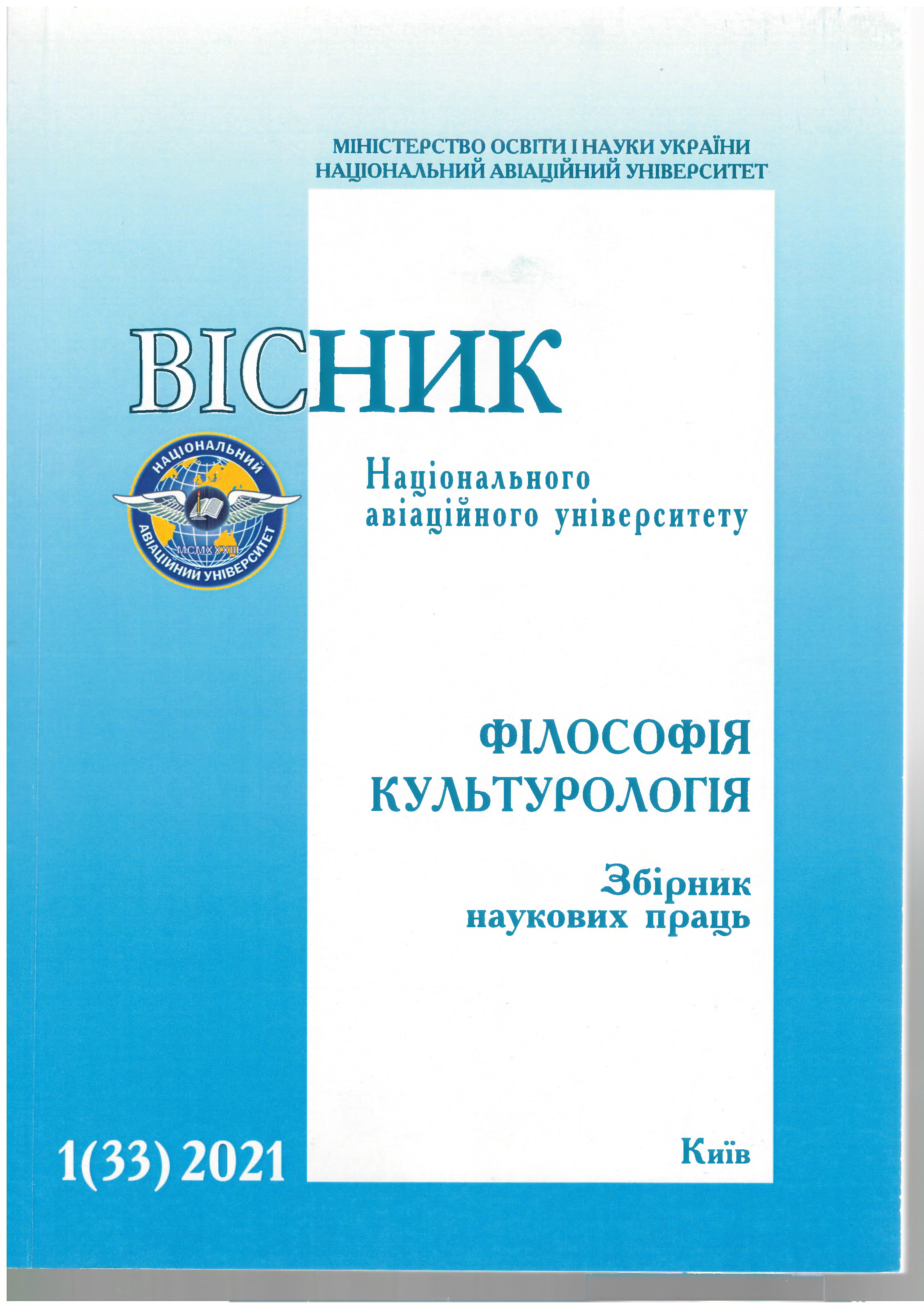TRANSHUMANISM IN THE PERSPECTIVE OF PHILOSOPHICAL AND RELIGIOUSANTHROPOLOGY
Keywords:
ranshumanism, philosophy, religion, biotechnology, society, morality, ethics, man, consciousness, worldview, meanings, natural sciencesAbstract
Introduction. The article is devoted to the philosophical, religious understanding of the latest technologies in the field of natural sciences. We are talking about transhumanism, which causes a number of problems – genetic engineering, biotechnology, related to the philosophical justification of ethical provisions pro et contra, and research in neurobiology and cybernetics, with the prospect of changes in the human brain, creative and semantic abilities, related to philosophical and religious discussions about the nature of consciousness and intellect. The aim and tasks of the article is to justify and disclose the main characteristics of transhumanism not only as a specific scientific field, but also as a big problem of ethics. The main aim is a research, analysis, disclosure and explanation of the essential characteristics of transhumanism, its connection with all spheres of society, with the basics of human life. Research methods of trans-humanism in particular are systemic, interdisciplinary, analytical, hermeneutical, historical and philological methods, the method of innovative ethnography, etc. Religion exists and functions in a particular society, in a particular sociocultural and the political situation, therefore, one of the methods of studying transhumanismis the comparative method includes this entire multicomponent. Research results. The basic conceptual values of transhumanism are revealed, which are formulated regardless of the historical context of a certain era. It is emphasized that trans-humanism as a worldview can have meanings if the ethical principles of using its technological aspects are resolved. Religion, which considers most artificial technologies to be purely negative, plays a role in resolving the moral rationale for trans-humanism. Discussion says that methodological integration involves a systematic, typological, comparative and field study of trans-humanism. Conclusion.The conclusion is that the universal practical and immoral goal of transhumanism is to achieve power over all characteristics of human life.
References
Bostrom N. A History of Transhumanist Thought.
/N.Bostrom. – Journal of Evolution and Technology – Vol. 14
Issue 1 – April 2005. – Р. 1-25.
Bostrom N. Existential Risks. Analyzing Human Extinction
Scenarios and Related Hazards. /N. Bostrom. – Journal of Evolution
and Technology, Vol. 9, March 2002. First version: 2001
(Електр. ресурс). – Режим доступу: http://www.nickbostrom.com
/existential/risks.html
Ettinger R. Man into Superman./R. Ettinger. – Ria University
Press, 2018. – 428 p. (Електр ресурс). – Режим доступу:
http://www.cryonics.org/contents2.html
Kurzweil R. The singularity is near: when humans transcend
biology. /Kurzweil. – Viking Adult, 2005. – 672 p.
Kurzweil R. The Age of Spiritual Machines: When Computers
Exceed Human Intelligence, / R. Kurzweil. – Viking Adult,
– 400 p.
Moravec H. The future of robot and human intelligence. /
H. Moravec. – Harvard University Press, 1990. – 222 p.
More M. Principles of Extropy, 2020./М.More (Електр.
ресурс). – Режим доступу: http://www.extropy.org/pnnciples.htm
More M. 1990, revised 1996. Transhumanism: Towards a
futurist philosophy. / М. More. – Extropy 6. (Електр. ресурс). –
Режим доступу: http://www.maxmore.com/transhum.htm
Катасонов В. Н. Введение в философскую феноменологию /
В.Катасонов. – Православный Свято-Тихоновский гуманитарный
ун-т. – М. : Изд-во ПСТГУ, 2012. – 52 с.
Кримський С. Б. Під сигнатурою Софії / С.Б. Кримський. –
К.: Вид. дім «Києво-Могилянська академія», 2008. – 367 с.
Рижко Л.В. Інформаційне суспільство: особливості на-
укового простору / Л.В. Рижко. – Вісник Національного авіа-
ційного університету. – Серія : Філософія. Культурологія. –
Зб.наук. праць. – К.:Вид-во Нац. авіац. ун-ту «НАУ-друк»,
– №2 (12). – С.31-36.
Конотоп Л.Г. Проблема життя та смерті в історії філо-
софії (мітологічні та середньовічні інтерпретації) – Моногра-
фія. /Л.Г. Конотоп. – Український вільний ун-т. Філософічний
факультет. – Мюнхен, 1993. – 277 с.
Хабермас Ю. Будущее человеческой природы: На пути к ли-
беральной евгенике? / Ю. Хабермас. – М. : Весь Мир, 2002 – 144 с.
Фукуяма Ф. Наше постчеловеческое будущее: послед-
ствия биотехнологической революции. / Ф.Фукуяма – М. :
Люкс, 2004. – 349 с.
Гегель Г.В.Ф. Философская пропедевтика // Работы раз-
ных лет. – В 2 т. – т.2. / Г.Гегель. – М. : Наука, 1971. – С. 23 – 545.
Гегель Г.В.Ф. Наука логики / Г.В.Ф. Гегель. – В 3-т. –
Т.1.– М.: Мысль, 1970. -502 с.; Т.2. – М.: Мысль, 1971. – 449 с.;
Т.3. – М. : Мысль,1972. – 623 с.
Пико делла Мирандола Д. Речь о достоинстве челове-
ка/Д. Пико делла Мирандола // История эстетики. Памятники
мировой эстетической мысли в 5-и тт. Т.1. М.: Изд. Академии
художеств СССР. 1962. 682 с. – с. 506-514.
Кондорсе Ж. Эскиз исторической картины прогресса чело-
веческого разума / Ж. Кондорсе. – // Антология мировой филосо-
фии. В 4-х т. М.: «Мысль». Т. 2. Европейская философия, от эпохи
Возрождения по эпоху Просвещения. 1970. –776 с.
Ламетри Ж. Человек-машина / Ж . Л аметри // А нтоло-
гия мировой философии. В 4-х т. М.: «Мысль». – Т. 2. Евро-
пейская философия от эпохи Возрождения по эпоху Просве-
щения. 1970. – 776 с. с илл. с. 609-621.
Каюа Р. Людина та сакральне. Видання, доповнене
трьома додатками, про секс, гру, війну в їхньому відношенні до
сакрального / Р.Каюа; (пер. з франц.) – К. : Ваклер, 2003. – 256 с.
Філософія: Світ людини. / В.Г. Табачковський,
М.О. Булатов, Н.В. Хамітов та ін. – К. : Либідь, 2003. – 432 с.


